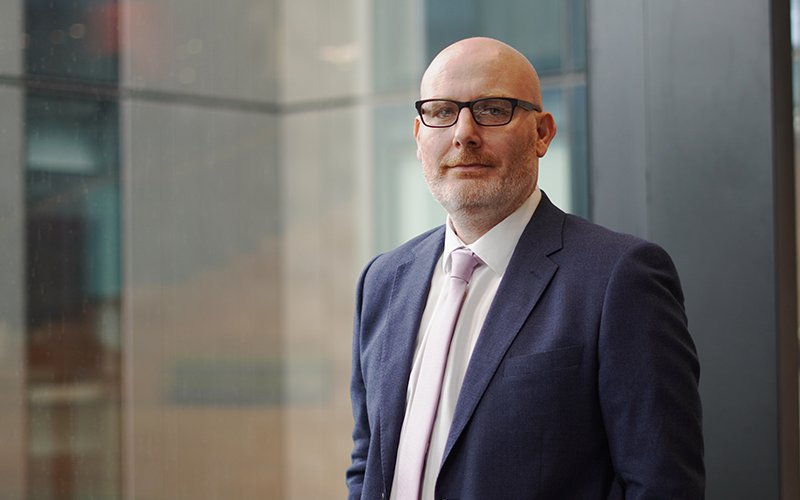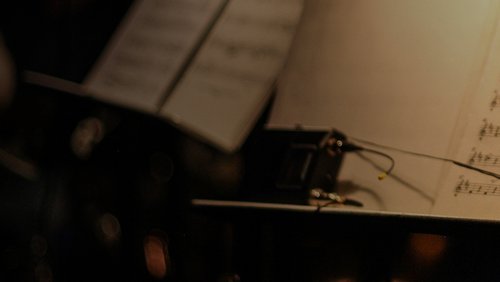1 Aug 2024
Meet Richard Clarke, Executive Dean of the Faculty of Engineering at the University of Auckland. Learn about his role, some of his career highlights and much more.
What is your role at the University of Auckland?
In December of last year I took on the role of Executive Dean of the Faculty of Engineering. Previous to this I held the roles of Associate Dean Postgraduate Research (looking after the PhD and Research Masters students) and then Deputy Dean. Overall, I have been in the Faculty for 16 years teaching in the Department of Engineering Science and Biomedical Engineering.
Tell us about three of your career highlights.
- Having joined the Faculty as a lecturer in 2008, it is the place where I have spent almost the entirety of my career. And so now being able to serve the Faculty as its Dean is not only a career highlight, but also a huge privilege and honour.
- Secondly, for about a decade I led the Engineering Science second year field trip. Not only was this a chance for the students to see how engineering keeps the country going, but it is also the time where the students start truly coming together as a cohort and it was always special to see the start of those friendships form. And having recently been invited to attend a reunion of the Ardmore Auckland Engineering graduates from the 1960’s, I know that many of these friendships will last a lifetime.
- The final of the three highlights, seeing our graduates go on to successful careers never gets old. Some of the undergraduates that I taught when I first arrived in the Faculty are now some of the most senior figures in their organisations. Others have started companies that have been valued in the millions and even billions.
And so over the course of my time with the Faculty, there is never been a day when the purpose of what we do here has not been self-evident, and it is this which makes this such as fulfilling career.

Richard Clarke. Image: Supplied
What do you think are the biggest challenges facing universities around the globe at the moment?
There are many, some obvious, but perhaps one that I’ll mention comes from our increasing shift towards an on-demand society, and the consequential decline in formats that only deliver content linearly. Our students are no different, and increasingly expect to learn on their terms and time. And so the question of online versus in-person, and how as a Faculty and institution we can add value to the in-person experience and create an online experience that is comparable to the standards experienced in other contexts, is something that increasingly occupies our attention. Of course, in Engineering where laboratories and experiential learning are critical to the learning outcomes, the value proposition from the in-person and on-campus experience is still very clear. However, as technologies and expectations continue to develop at pace, as educators it is important for us to constantly review what we do, and how we do it.
How does the University of Auckland celebrate the diversity within its teaching and research staff?
People diversity is a gift to any organisation, as it leads to diversity of thinking, which in turn leads to better solutions. We have staff and students who are drawn to us from all parts of the world, which in my opinion is a hallmark of the international regard in which the University of Auckland Faculty of Engineering is held. As an example of how we actively celebrate this diversity, one of the highlights of the calendar for me is the Faculty Cultural Lunch, where staff bring in dishes from their home cuisines, which is a truly uplifting (and delicious) occasion.
How does the University of Auckland integrate Te Ao Māori principles into their engineering courses?
Te Ao Māori and development of cultural competencies features throughout the engineering programmes, including in our professional development courses where students are instructed on an engineer’s professional responsibilities around cultural considerations. Moreover, as part of the University’s Curriculum Transformation project, the Faculty is introducing a new first year course that will further develop awareness of obligations under Te Tiriti, as well as knowledge of place, and unique engineering aspects of Te Ao Māori, such as in design and construction.
Does the University of Auckland allow students to use AI tools to complete their assignments and if so, what are the challenges students need to be aware of, when using AI?
Under its TeachWell framework, the University has provided teachers with some principles and guidelines to follow when considering the use of AI in the classroom. These include being really clear with the students when and how Generative AI is permitted. For example, sometimes AI may be permitted for refinement of work, whereas for some assessments it may be prohibited entirely. The University has also produced advice for students on the use of Generative AI in coursework, including having a clear understanding of when such tools are acceptable for use, as well as outlining the risks that such tools present. These include well-known issues around accuracy, bias, quality and data privacy. As these tools inevitably become a greater part of our everyday lives, the skills imparted by an higher education, such as the ability to critically analyse and discern, are only going to become more important.
Why are you a member of Engineering New Zealand?
Engineering New Zealand is an incredibly important partner and stakeholder for the Faculty. We rely on the expertise offered by the Engineering New Zealand community to advise us on our programmes, and how they can best serve the profession. They are also an important advocate for the criticality of engineering education, at a time when as a nation we are simply not graduating enough engineers, and not enough high school leavers have the requisite qualifications to enter into engineering programmes.
Complete the following sentence. "Today’s engineering student needs to be..."
"...agile". It is said that change is the only constant, and I believe that is truer now that it has ever been. Today’s graduates will need to be constantly updating their professional skills as the pace of change quickens.
What do you do in your spare time?
I usually like to have a DIY project going. I find it a nice change of pace from what I do during the working day, and it also offers up different kinds of problem solving opportunities. A couple of years ago I redid the house roof (luckily over a summer where we had a decent dry spell), which was rewarding when complete … but never again.




